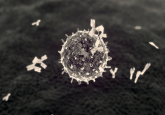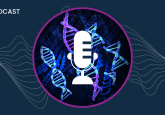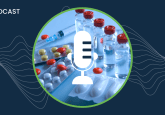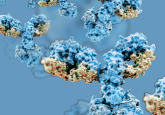Beyond the Abstract: an interview with Anthony Breton
In our new podcast series, we’re joined by a Bioanalysis author to review their publication’s biggest challenges, wider impact and next steps. In the first episode, we’re joined by Student Researcher Anthony Breton to discuss volumetric absorptive microsampling (VAMS®) as an alternative to venepuncture for the assessment of essential and toxic elements.
The Bioanalysis article:
Method development for the quantification of lead levels in whole blood sampled on Mitra® with VAMS® tips by inductively coupled plasma–MS/MS
Breton A, Cirtiu C M, Fleury N, Lajeunesse A & Rudge J | Bioanalysis, 15(2), 71-81, (2023)
Keywords: • blood lead level (BLL) • ICP–MS/MS • lead (Pb) • volumetric absorptive microsampling (VAMS®) • whole blood
Background: Lead is harmful for humans by having adverse effects on different biological systems. Venepuncture is the gold standard for blood lead level analysis, but this method has many flaws. The goal of this research was to develop and validate a more practical approach for blood sampling. Materials & methods: Mitra® devices based on VAMS® and inductively coupled plasma–MS/MS technologies were employed. Performance evaluation of the newly developed method was also performed by comparing it versus a commonly used method at the Centre de Toxicologie du Québec for blood lead level analysis. Results: Comparison showed no signs of significant difference between the two methods. Conclusion: VAMS may be a useful alternative sampling approach for further research on blood lead analysis and possibly for many other trace elements.
Read the full Research Article via Bioanalysis
Questions:
- Could you provide a brief introduction to the paper? [0:45]
- What was the primary motivation behind the research? [1:20]
- How did you get funding for the project and how long was the research period? [2:52]
- What were the key challenges you faced during the project? Were there any failed stages that did not make it into the paper? [3:14]
- Could you summarize the key outcomes of the research and what this means within the wider context of the field? [5:21]
- In 30 seconds, why should someone read the paper? [6:17]
About the speaker:

Anthony Breton
Student Researcher
Québec National Institute of Public Health (Canada)
Anthony is currently finishing his Master’s degree in Chemistry at the Université du Québec à Trois-Rivières (UQTR; Quebec, Canada). He works in association with the Quebec National Institute of Public Health (INSPQ) to develop and validate an analysis method for toxic and essential elements in blood samples on the volumetric absorptive microsampling platform VAMS®. Anthony also holds a Bachelor’s degree in Chemistry, specializing in Forensic Sciences, from UQTR.






